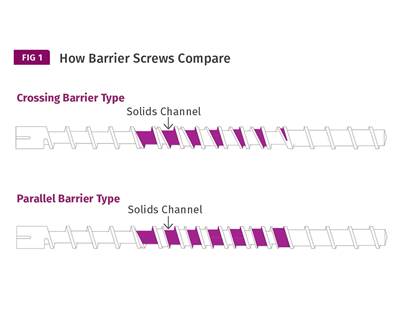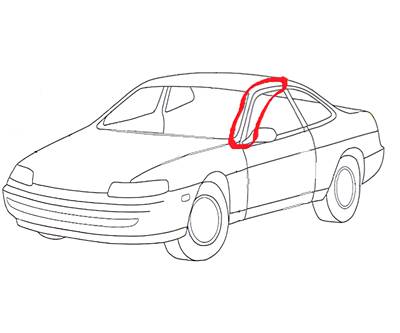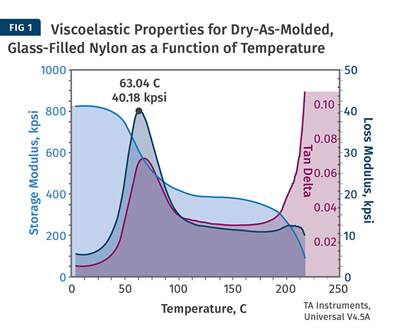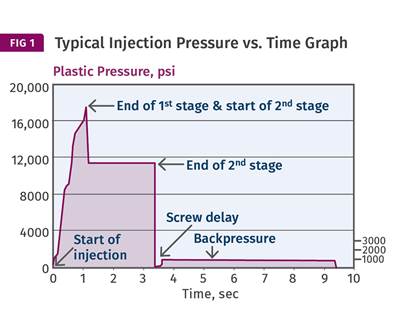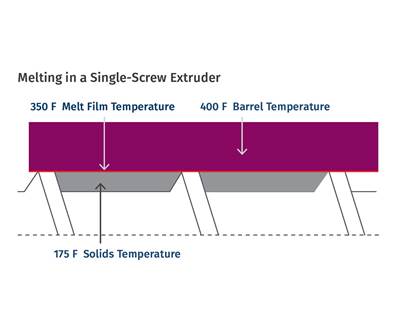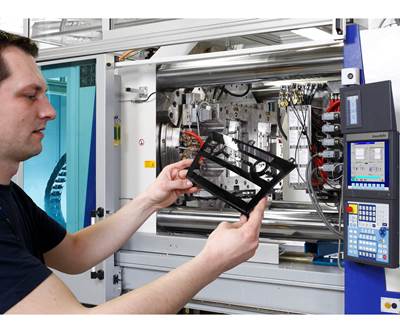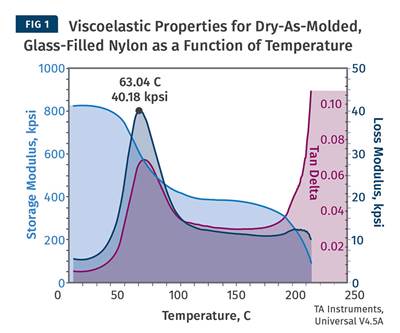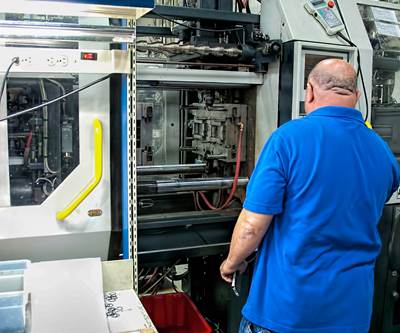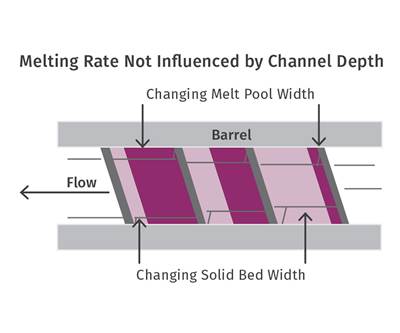Know-How
Barrier Screws: Not All Are Created Equal
Let’s take a deep dive into parallel and crossing types and see where each fit in.
Read MoreHow to Manage Pressure Loss in Injection Molding
Achieving a process window wide enough to ensure consistent part quality depends on achieving sufficient pressure at end of fill.
Read MorePart 5: Heat Deflection Temperature vs. Dynamic Mechanical Analysis
In the final part of this five-installment series, we bring DMA to a practical level using the results for glass-filled nylon.
Read MoreHow to Quickly Verify Your Machine & Process Setpoints
For a quick check of your process setup, the injection-pressure-vs.-time graph is your best tool.
Read MoreWhy Barrel Temperatures Have a Small Effect on Melt Temperature
Extruders are not like ovens. Tweaking barrel-temperature profiles will not influence melt temperature all that much. Here’s why.
Read MoreThe 'Butterfly Effect' in Injection Molding—A Connected Process
In injection molding, a seemingly minor change in a setpoint can have a significant impact on part quality and process robustness and repeatability. That’s why Scientific Molding focuses on process outputs, not setpoints.
Read MorePart 4: Heat Deflection Temperature vs. Dynamic Mechanical Analysis
The presentation of DMA data can sometimes frustrate users and discourage its adoption. Those unfamiliar with DMA should insist on receiving data relevant to the manner in which the part they are developing will be used.
Read MoreMold-Clamping Details for Profit
Taking time to sweat the details of clamping is not much fun, but they do make a difference in a company’s bottom line.
Read MoreSimple Scale-Up Calculations for Melting
You can avoid complicated melting equations when designing or evaluating a screw by using simpler methods that can save time and provide good results.
Read MoreHeat Deflection Temperature vs. Dynamic Mechanical Analysis (Part 3)
DMA provides a rich and detailed picture of polymer performance, and it can be challenging to understand all the things that we can and should know about our materials. But the fact that it may be hard does not mean that it should not be attempted.
Read More